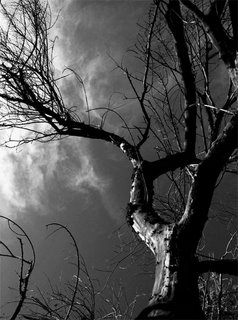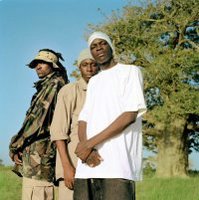Mature Cool

Maturity is the ultimate uncool. Mature literally means
ripe, but in the eyes of cool it means old. And old means outdated, irrelevant and not cool.
Very few people manage to maintain a cool in their maturity. Johnny Cash was one. For some reason hipsters clung to the septuagenarian Cash like they never did in his prime. One reason maturity is not cool is because mature people no longer care about being cool, and cool’s power disappears like mist when people stop believing in it.
To the hip young, an old person is a
memento mori – a reminder of death. The old person carries in his or her body the signs of time fleeing. Cool is about effortless mastery of the environment, and stiff joints, failing eyesight, brittle bones and gray hair are sure proof that the environment will always prevail.
People who are not afraid to be reminded of death can linger in the presence of maturity like the cowardly hipster never can.
All this to say: I just read a book about Eldridge Cleaver - a collection of the former Black Panther's lifelong writings. Most notable about the book was its emphasis on the mature Cleaver's thought. The author of
Soul on Ice, the definitive black power book, lived many years after his black power days, and he changed his mind about a great many things.
He paid a big price: when he renounced violent revolution, the panthers shunned him, just as Cleaver had earlier done to Martin Luther King. But Cleaver didn't care. He was growing up, and growing old, and came to see the world differently than when he was a young man.
In the end, growing is far more human than shaking one's fist against the sky. Cool doesn't allow people to change; cool is too fickle to care about real life.

How Negative is Too Negative?

At the time, in the early 1990s, I didn’t realize just how unique was the Zurich heroin scene I witnessed close-up. In the mid-eighties, Zurich, in Switzerland, more or less legalized heroin in a downtown park. The idea was to control the spread of addictions and overdoses, as well as control HIV infections. In most respects it was a disaster.
Heroin users flocked to the park from around Europe, and the overall levels of human misery went through the roof. Ultimately, the city closed the park, although it has meanwhile been restored as a real urban gem and reopened.
Meanwhile, the short-lived heroin scene at Platzspitz Park, or Needle Park in Zurich, is seared into the memory of everyone who saw it, including me. Heroin addiction truly is hell. It turns people into the living dead.
With my first draft of the book, my editors very rightly pointed out that I was too negative about lots of things, and that I used too many superlatives. They are entirely right. Nobody wants to read a sequence of rants. Nobody wants to read a series of grumpy entries.
Usually, I discovered, it’s easy to fix negative language: merely state the opposite in positive terms – instead of “this is bad,” you say “here’s what could be.” It’s a good practice in life, not just when writing.
But with heroin in general, and with Needle Park in particular, it was pretty hard to reign myself in. Heroin is a quiet drug, in comparison to crack or even alcohol. Users are rarely out to pick a fight. Accordingly, most people have way too benign opinions about heroin.
I don’t know where I’ll land in the long term, but my emotions are much stronger about heroin, and about the legalization of drugs, than about most social policy issues.

Belonging
Belonging to the church is harder in practice than in theory. How can we reconcile with our parents and clueless local churches? Share your story with us.
Stolen from Africa Brought to America?

Senegalese Rappers
Daara J have an infectious song out about Hip Hop returning to its homeland in Africa. "Boomerang" [
here's the iTunes URL] says the music we now know as Hip Hop derives directly from West African
griot singing, and the song celebrates its return "home".
It's a brilliant twist on Hip Hop's endless battles for authenticity - instead of saying, "I'm more of a criminal than you, therefore I'm less of a sell-out than you, therefore I'm more authentic than you," Daara J stake their claim on cultural ancestry.
America would do well in general to own our African roots. Almost all our music has black DNA - from Country to Rock. Even a lot of Polka is played with blue notes.
Still, there is a bit of superiority built into the Boomerang claim: a cult of purity. The fact of the matter is that most black music in America has white DNA as well, especially in harmonies. Daara J's Afrocentric approach glosses over the contributions of Europe to the American soul.
That being said, the best aspect of "Boomerang" is the worldview: that authenticity comes from belonging in history, rather than being an autonomous individual. That's a lesson we desperately need in the contemporary West.

 Maturity is the ultimate uncool. Mature literally means ripe, but in the eyes of cool it means old. And old means outdated, irrelevant and not cool.
Maturity is the ultimate uncool. Mature literally means ripe, but in the eyes of cool it means old. And old means outdated, irrelevant and not cool.


 Author and Speaker
Author and Speaker
